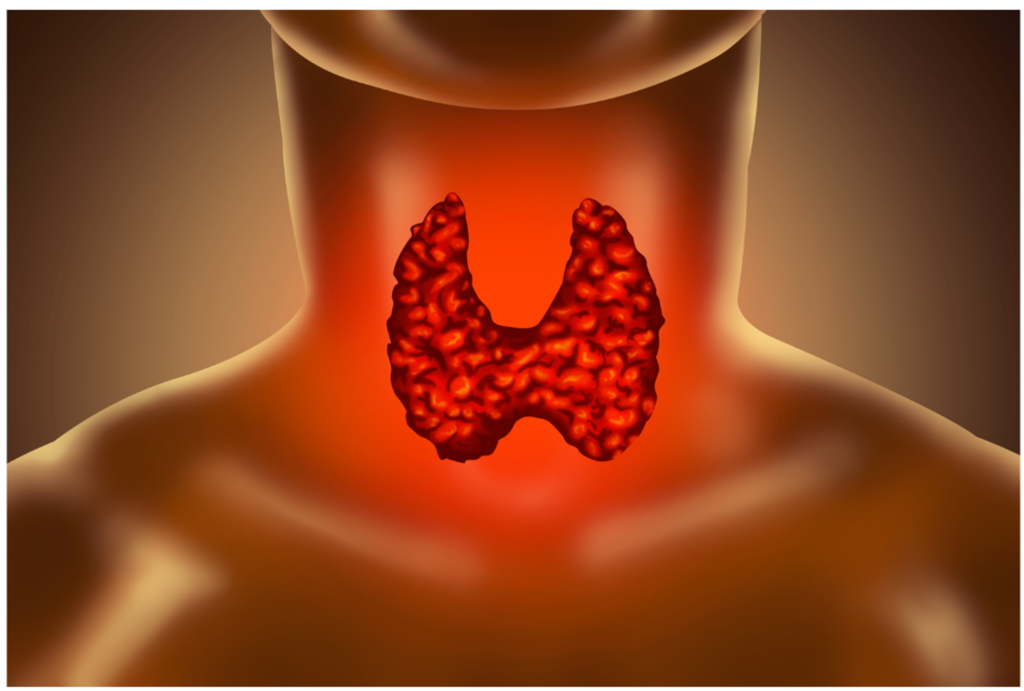
ADHD is characterized by symptoms such as inattention, hyperactivity, and impulsivity. On the other hand, thyroid problems occur when the thyroid gland, located in the neck, does not produce enough thyroid hormones or produces too much. It has been suggested that there may be a link between ADHD and thyroid problems.
The thyroid gland plays a role in many vital functions in the body, including heart rate, breathing, rate of calorie burning, and heat production. It does this by creating two hormones: triiodothyronine (T3) and thyroxine (T4).
Thyroid disorder is a common disorder—around 20 million people in the United States have thyroid disease.Thyroid problems can affect both children and adults, and symptoms can include fatigue, weight gain, and depression. In some cases, thyroid problems can also cause symptoms similar to those of ADHD, such as difficulty concentrating and forgetfulness. This can make it difficult to diagnose ADHD in individuals with thyroid problems, as these symptoms can be mistaken for ADHD symptoms.
The Thyroid and Its Discontents
The thyroid gland plays a role in many vital functions in the body, including heart rate, breathing, rate of calorie burning, and heat production. These also play a role in digestive function, brain development and bone maintenance, among other things.
Thyroid hormone is produced in the pituitary gland of the brain and sends signals to the thyroid gland, which is a small butterfly-shaped gland in the front of the neck. There are two thyroid hormones: triiodothyronine (T3) and thyroxine (T4).
Most significantly, thyroid hormones alter brain function. Disruptions to thyroid hormones can cause wide-ranging effects on cognition and behavior that can appear similar to symptoms of ADHD.
- Hypothyroidism – In cases of hypothyroidism, an individual does not produce sufficient levels of thyroid hormone. Hypothyroidism can be caused by a variety of biological and environmental factors—such as poor hormone conversion, nutrient deficiency or environmental factors. Symptoms can include fatigue and difficulty concentrating, mimicking the inattentive subtype of ADHD.
- Hyperthyroidism – With hyperthyroidism, an individual produces excessive levels of thyroid hormone. Hyperthyroidism can be caused by an autoimmune disease -called Graves’ disease. This condition results in hyperactivity, anxiety, tremors and difficulty concentrating, which can mimic symptoms of hyperactive ADHD—which includes restlessness—as well as inattentive ADHD. Some of the overlapping symptoms between hyperthyroidism and ADHD are: anxiety, being easily distracted, excitability, hyperactivity, impulsivity, insomnia, irritability and lack of appetite.
Brain chemical changes that are caused by a thyroid issue can affect the symptoms of ADHD. The chemical imbalances cause the body not to function as it should subsequently sending mixed signals to the brain. This confusion in signals can impact symptoms already present due to ADHD and may possibly worsen them.
A Possible Link
Research has shown that individuals with ADHD may be at a higher risk of developing thyroid problems. One study found that children with ADHD were more likely to have an under-active thyroid (hypothyroidism) compared to children without ADHD. In fact, many children suffering from ADHD show generalized resistance to thyroid hormone. Another study found that adults with ADHD were more likely to have abnormal thyroid function tests compared to adults without ADHD.
The reason for this link between ADHD and thyroid problems is not yet fully understood. However, it is thought that it may be due to shared genetic factors or the impact of ADHD medication on thyroid function. Some studies have suggested that stimulant medication used to treat ADHD can affect thyroid hormone levels, leading to an increased risk of thyroid problems.
Treatment
Hypothyroidism is typically treated with thyroid hormone supplementation, while hyperthyroidism is treated with thyroid hormone-blocking medication. Stabilization of thyroid hormones should result in a decrease of symptoms, including those that mimic ADHD. It is important to follow up with a primary care provider or endocrinologist to obtain periodic blood work to make sure thyroid levels are within a normal range.
For those with thyroid issues, treating ADHD without addressing thyroid dysfunction isn’t enough. Those who have both thyroid dysfunction and ADHD will not obtain symptom relief unless each condition is treated separately.
It is important to note that not all individuals with ADHD will have thyroid problems, and not all individuals with thyroid problems will have ADHD. However, if an individual with ADHD is experiencing symptoms such as fatigue or weight gain, it may be worth investigating their thyroid function to ensure that any thyroid problems are identified and treated appropriately.
While the link between ADHD and thyroid problems is not yet fully understood, research suggests that individuals with ADHD may be at a higher risk of developing thyroid problems. It is important for individuals with ADHD to be aware of this potential link and to monitor their thyroid function if they are experiencing symptoms such as chronic fatigue or weight gain.
If you or someone you know is experiencing symptoms of ADHD or thyroid problems, it is recommended that you speak to a healthcare professional for further guidance and support.
References
- https://adhdonline.com/is-it-adhd-or-your-thyroid-or-is-it-both/
- https://www.nature.com/articles/s41598-020-75228-w
- https://www.psychologytoday.com/us/blog/here-there-and-everywhere/201706/is-it-adhd-or-thyroid-disorder
- https://www.medicalnewstoday.com/articles/thyroid-adhd#co-occurrence
- https://www.endocrineweb.com/conditions/thyroid-nodules/thyroid-gland-controls-bodys-metabolism-how-it-works-symptoms-hyperthyroi


